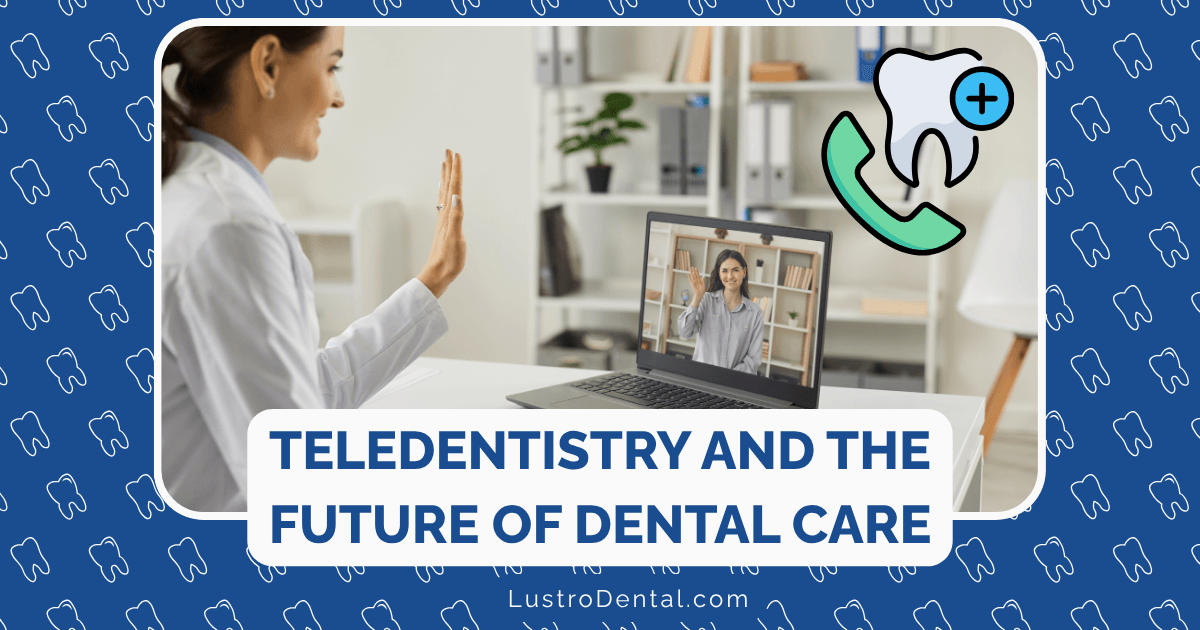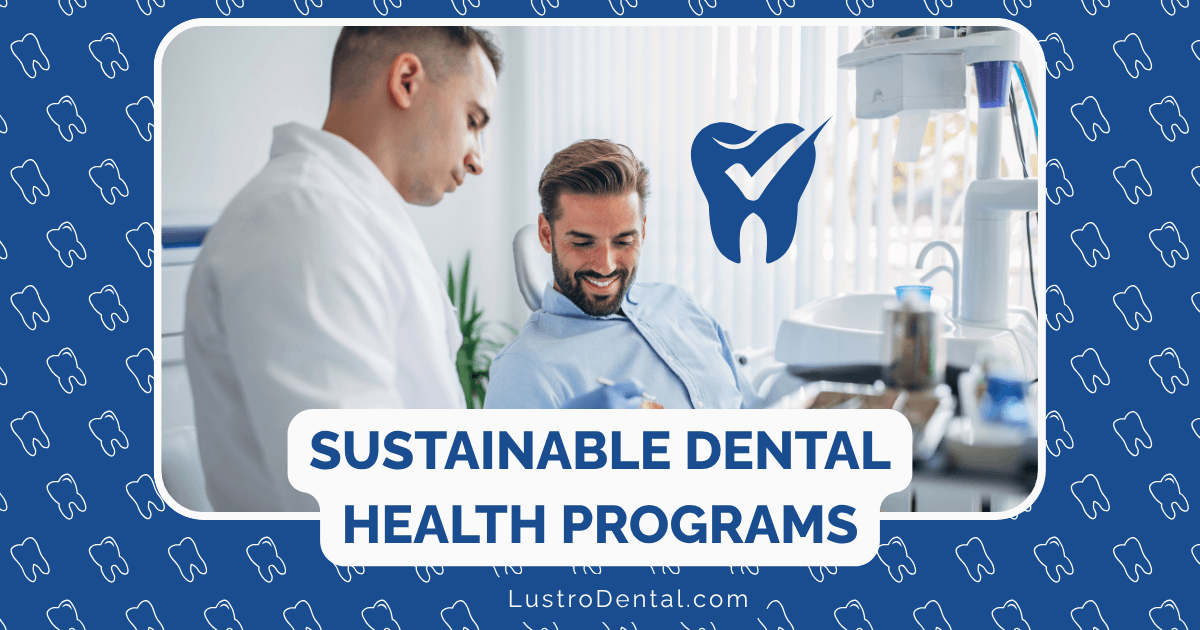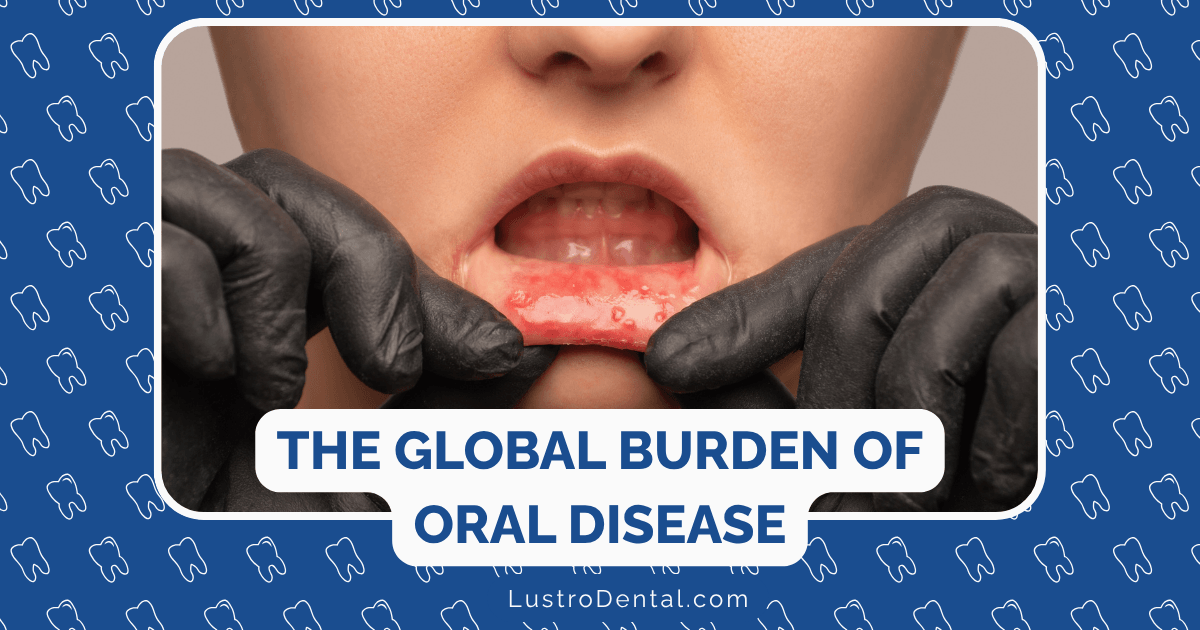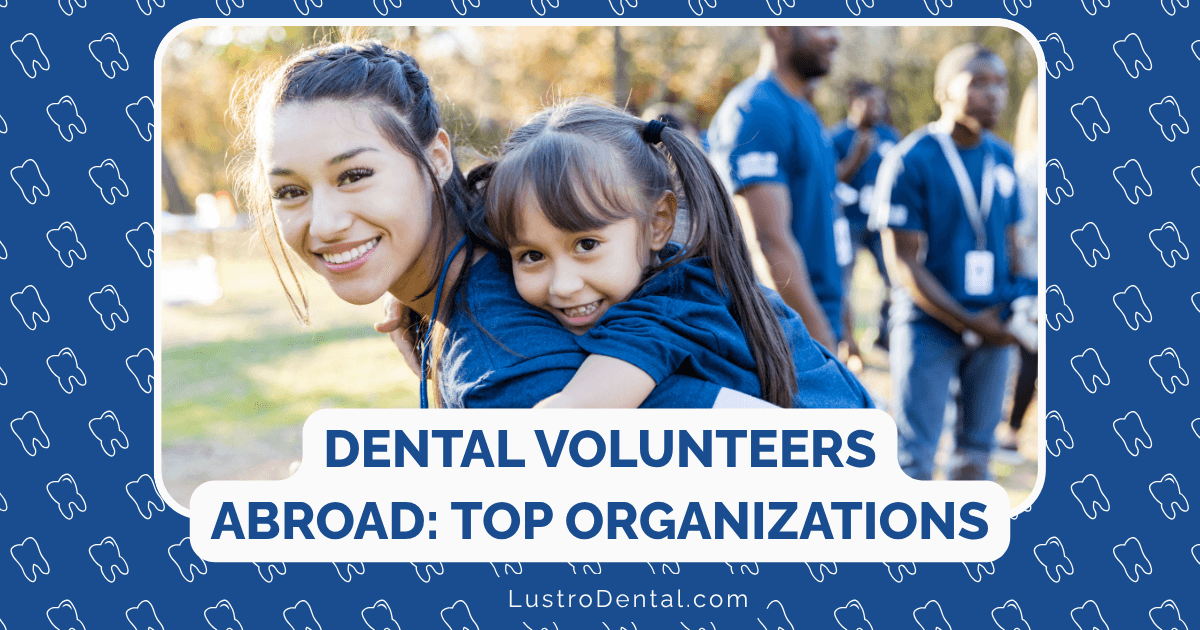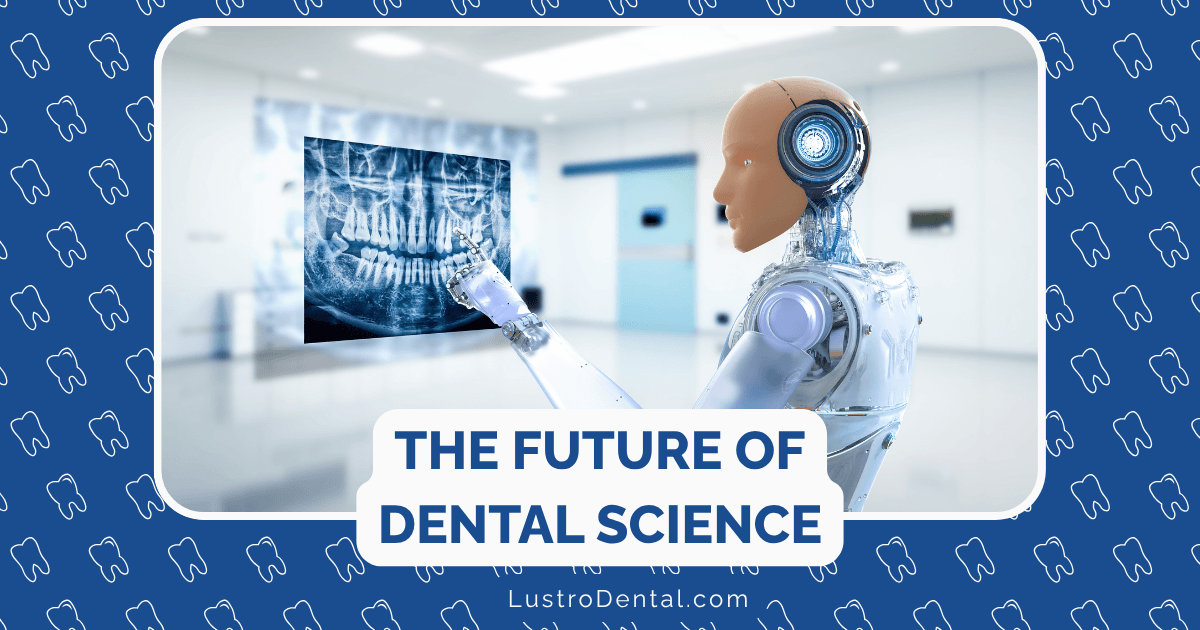Teaching by Example: How Parents’ Dental Habits Influence Children
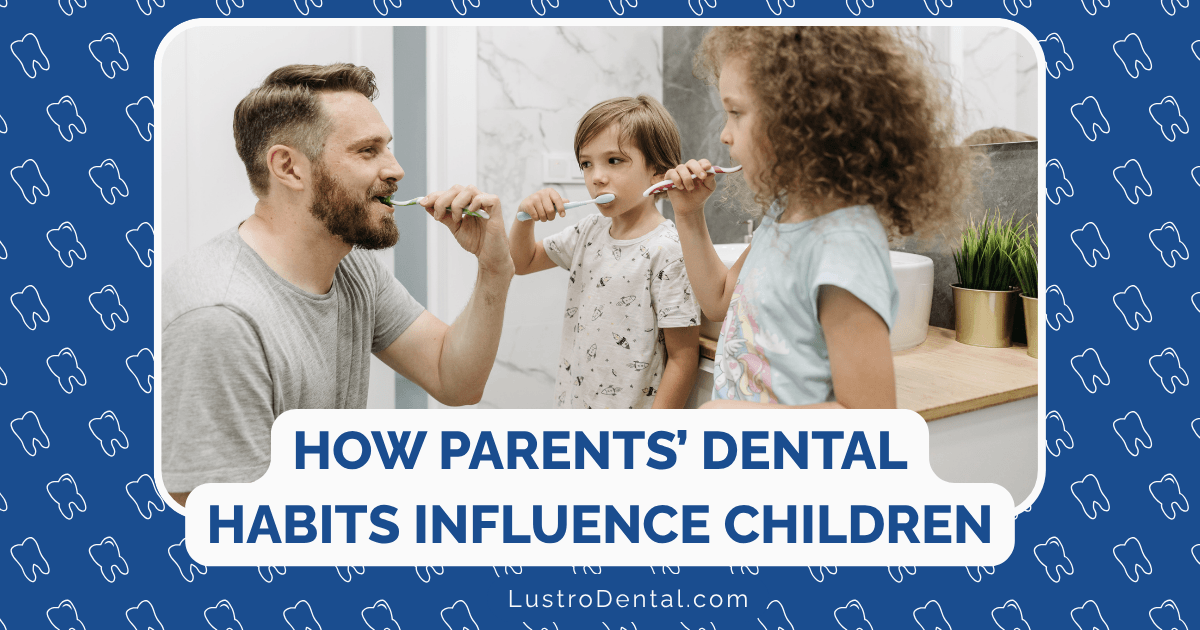
When it comes to dental health, the old adage “do as I say, not as I do” simply doesn’t work. Research consistently shows that children are more likely to adopt the oral health habits they observe in their parents rather than those they’re merely told to follow. This powerful influence extends from basic brushing techniques to attitudes about dental visits and even food choices that impact oral health.
In this comprehensive guide, we’ll explore how parental modeling shapes children’s dental behaviors, backed by the latest research, and provide practical strategies for parents to positively influence their children’s lifelong oral health habits.
The Science Behind Parental Influence
The Mirror Neuron Effect
Children’s brains are wired to learn through observation. Neuroscientists have identified specialized brain cells called “mirror neurons” that activate both when a child performs an action and when they observe someone else performing the same action. This neurological mechanism makes children particularly susceptible to mimicking their parents’ behaviors—including dental habits.
A 2024 study published in BMC Oral Health examined 1,102 preschool children and found a significant correlation between parents’ health literacy and behavior and their children’s oral health status. The research highlighted that children’s oral health behaviors are primarily learned during their developmental years, with parental actions serving as the strongest influence.
Statistical Evidence
The numbers tell a compelling story:
- Children whose parents brush twice daily are 5.2 times more likely to adopt the same habit compared to children whose parents brush irregularly.
- According to the American Academy of Pediatric Dentistry, children who regularly observe their parents flossing are nearly three times more likely to floss themselves.
- A Lithuanian study of 420 parents found a direct positive correlation (r = 0.14, p = 0.05) between parents’ oral health knowledge and their children’s oral hygiene behavior.
Dr. Sarah Johnson, pediatric dentist at Children’s Dental Center, explains: “Parents are the primary architects of their children’s dental habits. The patterns established in early childhood often persist throughout life, making parental modeling one of the most powerful tools for ensuring lifelong oral health.”
Critical Periods of Influence
Parental modeling impacts children differently at various developmental stages:
Infancy (0-2 years)
During these foundational years, babies observe their parents’ routines and begin forming associations with dental care.
Key parental influences:
- Demonstrating comfort during oral care (not showing disgust or discomfort)
- Establishing consistent cleaning routines
- Modeling healthy eating habits that protect developing teeth
Research insight: A study from the Journal of Clinical Pediatric Dentistry found that infants whose parents maintained visible oral hygiene routines had significantly less dental anxiety by age 3.
Preschool Years (3-5 years)
This period marks the development of autonomy, with children eager to imitate adult behaviors.
Key parental influences:
- Brushing together as a family activity
- Demonstrating proper technique through side-by-side brushing
- Exhibiting positive attitudes about dental visits
- Making healthy food choices while explaining their benefits for teeth
Research insight: The Connecticut Children’s Medical Center reports that children who brush alongside their parents develop more consistent habits and better technique than those who brush alone.
School Age (6-12 years)
During these years, children become more independent but still look to parents as role models.
Key parental influences:
- Maintaining consistent family dental routines despite busy schedules
- Demonstrating proper flossing technique
- Showing resilience when facing dental treatments
- Making water the default beverage choice over sugary alternatives
Research insight: A 2023 study in the International Journal of Paediatric Dentistry found that parental supervision and participation in oral hygiene routines remained significant predictors of children’s oral health even as children gained independence.
Adolescence (13-18 years)
While teens seek independence, parental influence remains powerful, often operating beneath the surface.
Key parental influences:
- Maintaining personal dental routines despite teen resistance to family activities
- Demonstrating commitment to regular dental check-ups
- Modeling responsible decision-making around orthodontic care
- Showing self-discipline with dietary choices that affect dental health
Research insight: According to research published in the Journal of Adolescent Health, teenagers whose parents maintained regular dental visits were 62% more likely to continue regular dental care into early adulthood.
Practical Strategies for Positive Modeling
1. Create Family Brushing Rituals
Transform daily dental care from a chore into a meaningful family routine:
- Morning and evening brushing gatherings: Designate specific times when the family brushes together
- Brushing soundtracks: Create 2-minute playlists that the family enjoys
- Technique check-ins: Take turns checking each other’s brushing technique
- Celebration of milestones: Acknowledge achievements like a full week of consistent brushing
Parent tip: “We turned brushing into our ‘dance party time’ with a rotating playlist of favorite songs. Now my kids actually look forward to brushing because it’s associated with fun family time.” – Maria, mother of three
2. Demonstrate Positive Dental Visit Attitudes
Children are highly attuned to parents’ emotional responses to dental appointments:
- Use positive language: Avoid words like “hurt,” “pain,” or “afraid” when discussing dental visits
- Share your own positive experiences: After your appointments, highlight the clean feeling and positive interactions
- Make appointments together: Schedule parent and child check-ups on the same day when possible
- Avoid using dental visits as threats: Never say things like “If you eat too much candy, you’ll have to go to the dentist”
Expert insight: Dr. Michael Chen, family dentist, notes: “Children whose parents exhibit dental anxiety are five times more likely to develop dental fears themselves. Conversely, children of parents who display confidence during dental visits typically show similar comfort levels.”
3. Model Thoughtful Food Choices
Everyday decisions about food and drinks powerfully influence children’s understanding of oral health:
- Think aloud: Verbalize your decision-making process when choosing tooth-healthy foods
- Create connections: Explain how certain foods strengthen teeth while others can harm them
- Demonstrate moderation: Show balanced approaches to treats rather than complete restriction
- Be consistent: Align your personal choices with the guidance you give your children
Research-backed strategy: A study from the Journal of Nutrition Education and Behavior found that children whose parents regularly discussed the health implications of food choices were more likely to make similar considerations independently by age 10.
4. Practice What You Preach with Oral Hygiene Products
The dental care products you use send powerful messages to your children:
- Use similar products: Consider family-friendly toothpastes and tools that everyone can use
- Demonstrate proper usage: Show appropriate amounts of toothpaste and proper brush care
- Invest visibly in oral health: Let children see that you prioritize quality dental products
- Introduce new tools together: Try electric toothbrushes or water flossers as a family experiment
Parent tip: “When I upgraded to an electric toothbrush, my son became fascinated with it. We made it a ‘growing up’ milestone for him to get his own when he turned seven, which made proper brushing something he aspired to rather than something he had to be reminded about.” – James, father of two
Overcoming Common Challenges
When Parents Have Dental Anxiety
Many adults carry dental fears from their own childhoods, creating a challenging cycle:
Strategies for breaking the cycle:
- Seek treatment for your own anxiety: Consider cognitive behavioral therapy specifically for dental phobia
- Be honest but constructive: Acknowledge your feelings while emphasizing that you’re working on them
- Partner with a compassionate dentist: Find a provider who understands generational dental anxiety
- Separate your experience from theirs: Recognize that your child can have a different dental journey
Expert insight: Psychologist Dr. Lisa Fernandez specializes in dental anxiety: “Parents who acknowledge their own dental fears while actively working to overcome them actually provide a powerful model of resilience for their children. This can be more beneficial than pretending to be fearless.”
Managing Busy Family Schedules
Modern family life often leaves little time for extended hygiene routines:
Practical solutions:
- Create non-negotiable dental times: Establish brushing as an absolute must, regardless of schedule changes
- Prepare travel dental kits: Keep basics in the car for hectic mornings
- Use technology wisely: Set family-wide reminder apps that synchronize brushing times
- Link to existing routines: Attach dental care to unshakeable parts of your schedule, like showering or changing into pajamas
Research-backed approach: Studies show that habits linked to existing routines have an 80% higher success rate than those requiring entirely new behavior patterns.
When Parents Have Their Own Dental Issues
Parents with dental problems may feel hypocritical encouraging better habits than they followed:
Constructive approaches:
- Use your experience as a teaching tool: “I didn’t take care of my teeth when I was younger, and now I have problems I don’t want you to face”
- Make it a family improvement journey: “We’re all learning to take better care of our teeth together”
- Celebrate progress rather than perfection: Acknowledge improvements in both parent and child habits
- Seek treatment visibly: Let children see you addressing your dental issues rather than hiding them
Parent perspective: “I grew up without regular dental care and had several visible problems. Rather than hiding them from my kids, I’ve been open about getting them fixed. My daughter was actually proud of me when I got my first filling, and it’s helped her see dental care as something positive rather than something to fear.” – Thomas, father of two
Cultural and Social Considerations
Intergenerational Patterns
Dental habits often reflect broader cultural and family traditions:
- Some cultures place greater emphasis on preventive dental care than others
- Family dental histories can create either positive traditions or negative cycles
- Socioeconomic factors may have limited dental access across generations
Breaking negative cycles: Research from the Journal of Public Health Dentistry suggests that first-generation changes in dental habits can create powerful shifts that impact multiple future generations.
Socioeconomic Realities
Access to dental care varies widely based on economic circumstances:
- Parents without dental insurance may avoid visits, unintentionally modeling avoidance
- Financial constraints may limit access to dental products and preventive care
- Work schedules may complicate regular dental routines
Resource navigation: Organizations like the American Dental Association’s Give Kids A Smile program and community health centers offer resources for families facing financial barriers to dental care.
The Long-Term Impact of Parental Modeling
The influence of parental dental modeling extends far beyond childhood:
Physical Health Outcomes
Research published in the Journal of Dental Research demonstrates that dental habits formed in childhood correlate strongly with adult oral health outcomes:
- Children who observe consistent parental brushing have 60% fewer cavities by age 12
- Regular family dental visits in childhood predict continued preventive care in adulthood
- Early established flossing habits correlate with lower rates of periodontal disease in adulthood
Psychological Effects
The way parents approach dental care shapes children’s long-term attitudes:
- Children who associate dental care with positive family interactions report less dental anxiety as adults
- Observed parental resilience in facing dental treatments helps children develop similar coping skills
- Consistent modeling teaches self-care as a form of self-respect
Intergenerational Transmission
Perhaps most powerfully, the habits parents model will likely be passed down to their children’s children:
- A longitudinal study from the University of Michigan found that dental habits tend to persist across three generations
- Parents who successfully improved upon their own parents’ dental habits created positive cascading effects for their children and grandchildren
Creating Your Family’s Dental Legacy
Every parent has the opportunity to establish positive dental traditions that can benefit generations to come:
1. Reflect on Your Dental History
Take time to consider the dental habits you observed growing up:
- What positive practices do you want to continue?
- What negative patterns do you hope to change?
- How have your own dental experiences shaped your attitudes?
2. Establish Your Family Dental Philosophy
Create an intentional approach to oral health in your home:
- Discuss and agree on family dental values with your partner
- Consider cultural traditions you want to honor or modify
- Decide on specific routines that will work for your family structure
3. Implement Consistent Practices
Move from intention to action with sustainable approaches:
- Start with one or two key habits rather than attempting complete transformation
- Create environmental cues that support your dental routines
- Develop family-specific rituals that make dental care meaningful
4. Evolve Your Approach as Children Grow
Recognize that effective modeling changes with your child’s development:
- Adjust your level of involvement as children gain independence
- Maintain open dialogue about dental health as children mature
- Continue demonstrating good habits even when children seem uninterested
Conclusion: The Power of Parental Example
The research is clear: when it comes to dental health, children learn what they live. Parents who brush and floss consistently, visit the dentist regularly, make tooth-healthy food choices, and display positive attitudes about dental care are likely to raise children who do the same.
This influence represents both a significant responsibility and a tremendous opportunity. By mindfully modeling good dental habits, parents can help their children develop lifelong practices that will protect their health, confidence, and quality of life for decades to come.
As family dentist Dr. James Wilson observes, “In thirty years of practice, I’ve never seen a child with excellent dental habits whose parents didn’t demonstrate those same habits. The most powerful dental health tool isn’t in my office—it’s the example parents set at home every day.”
What dental habits from your childhood have you carried into adulthood? How are you working to model positive dental behaviors for the children in your life? Share your experiences and strategies in the comments below.



